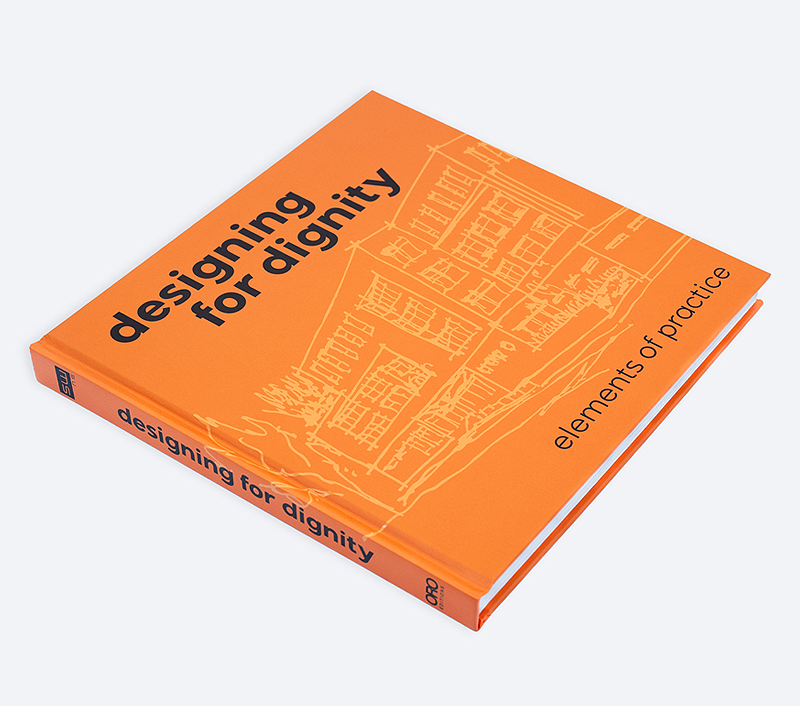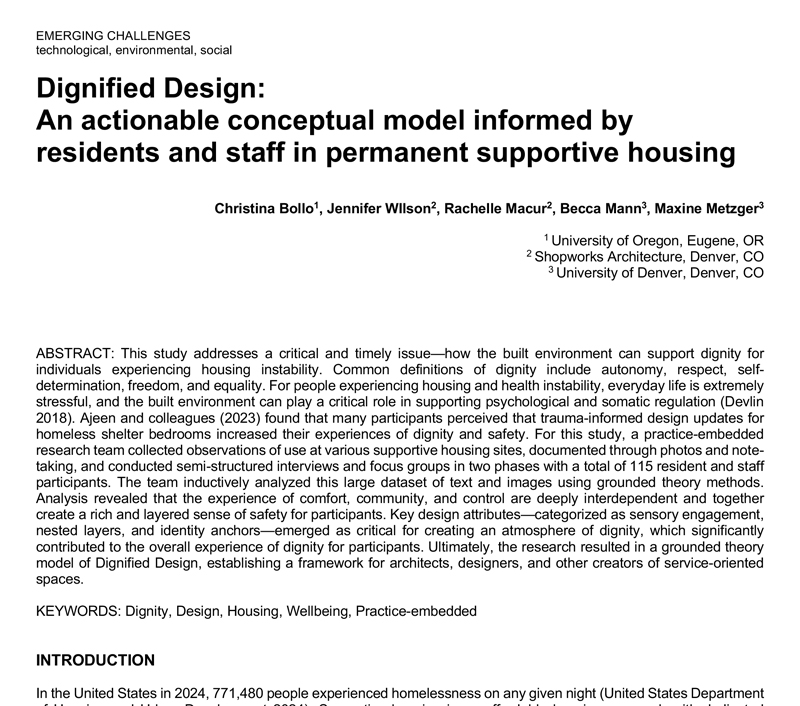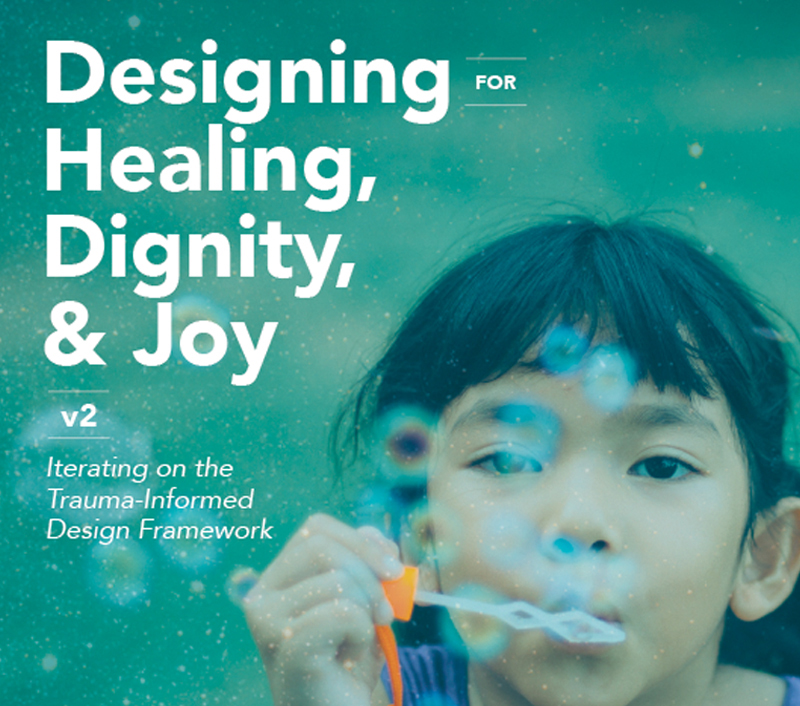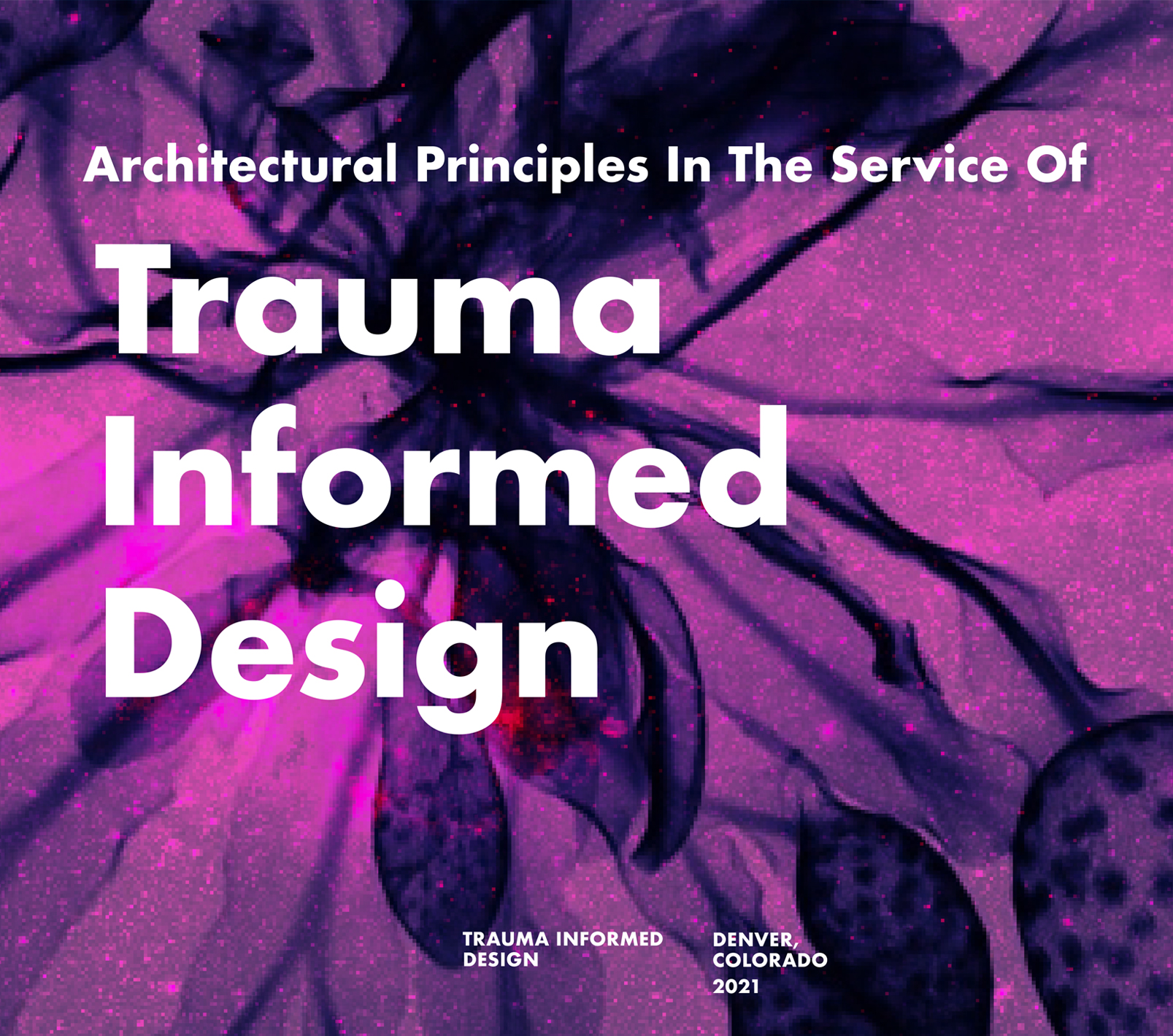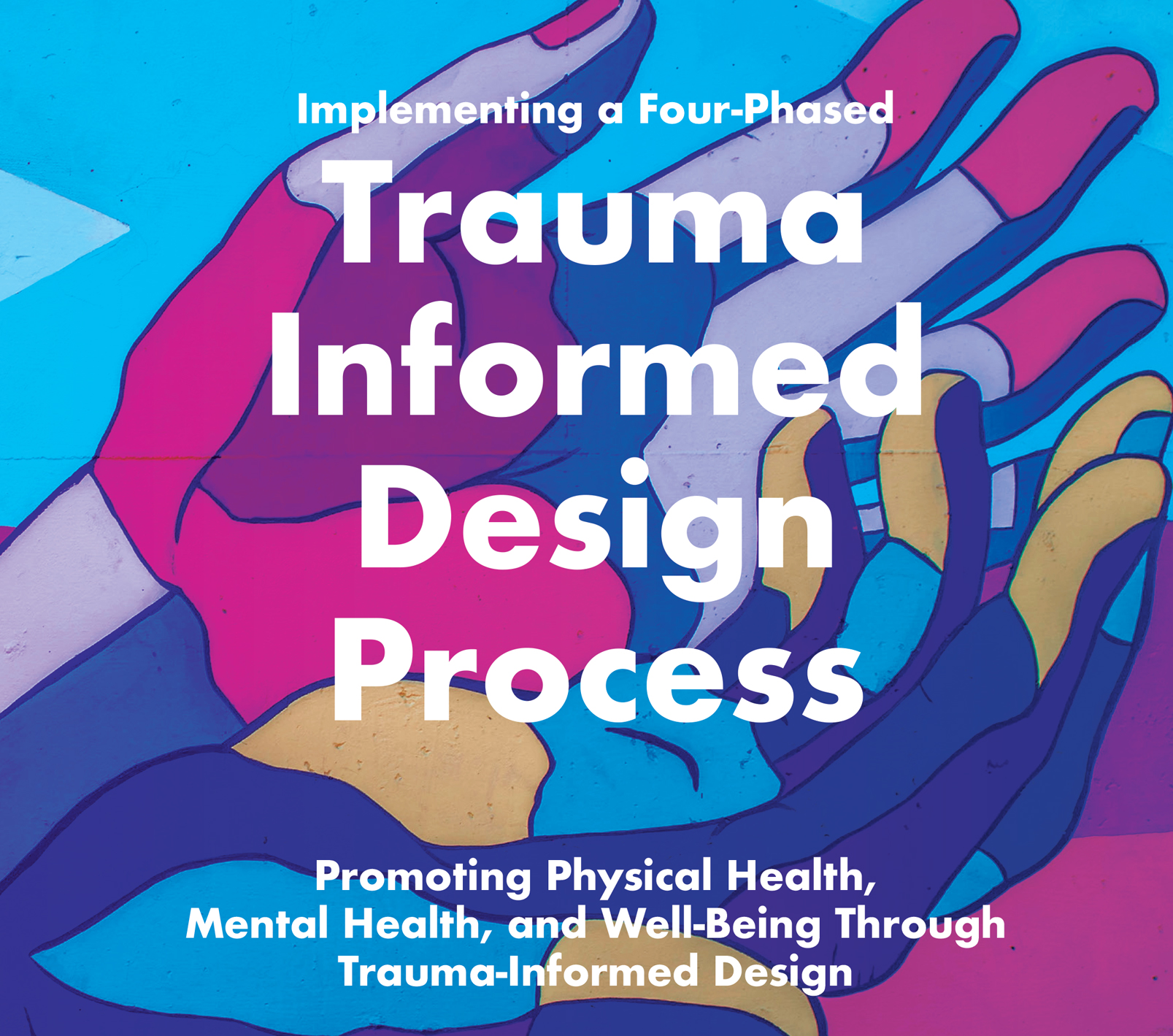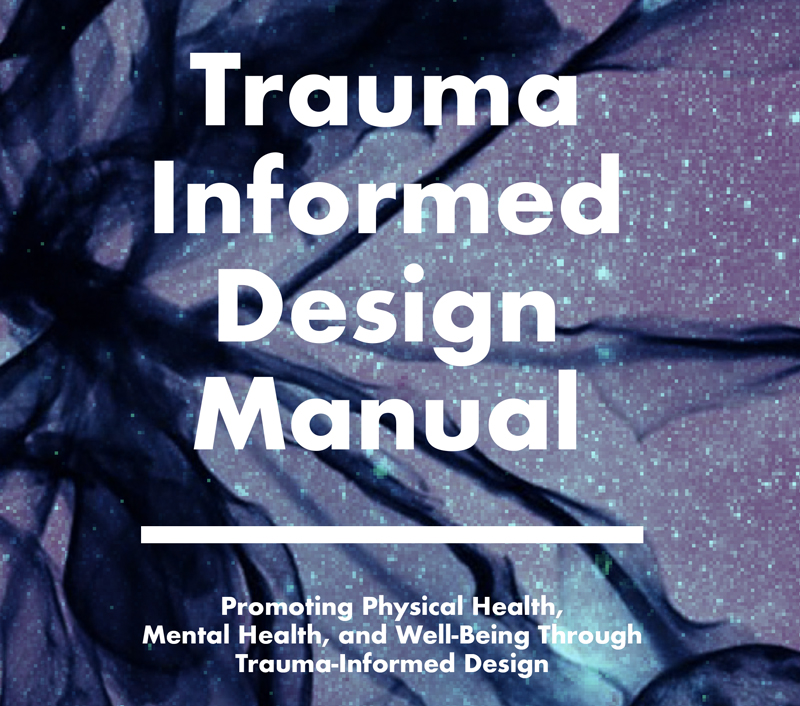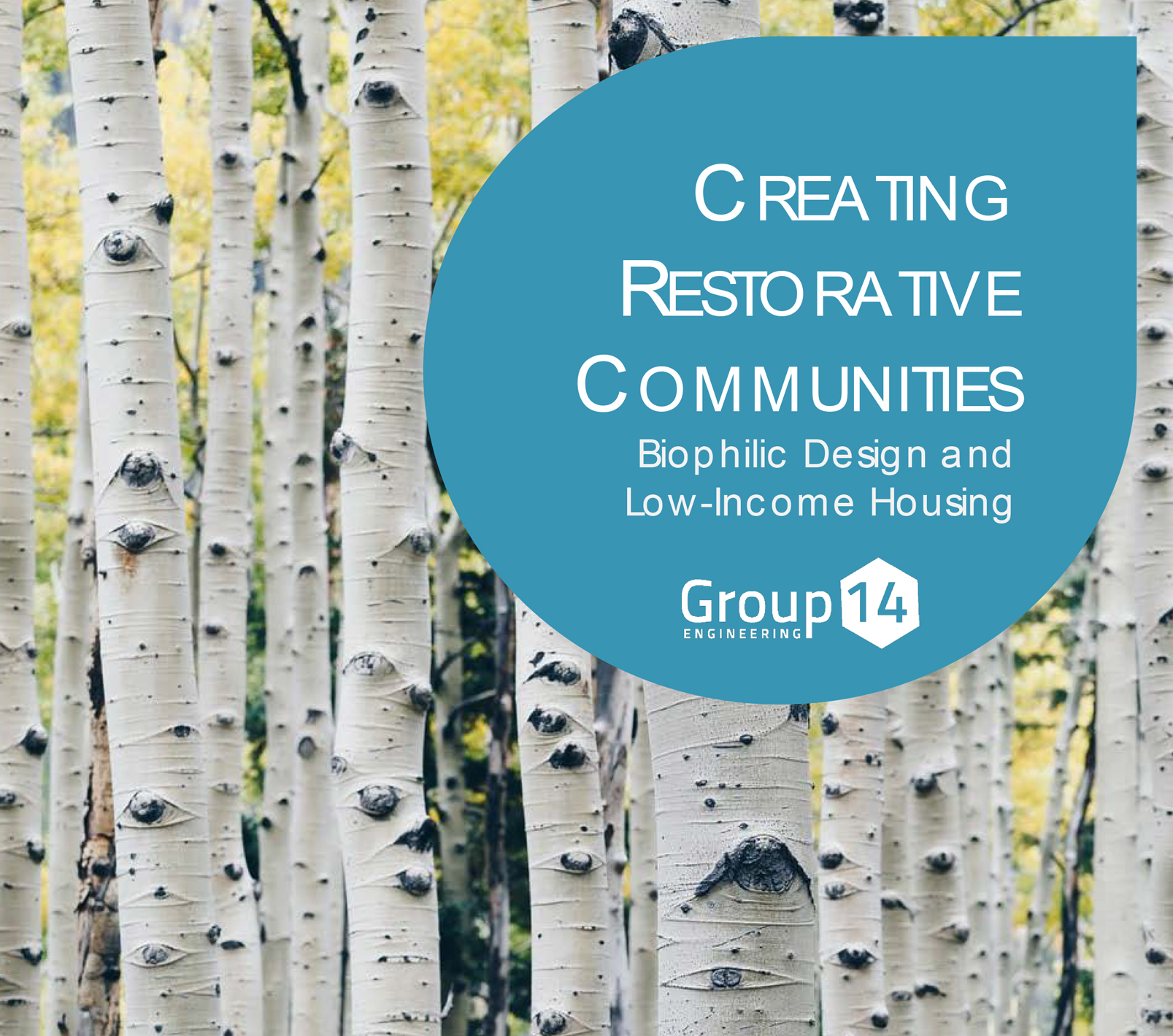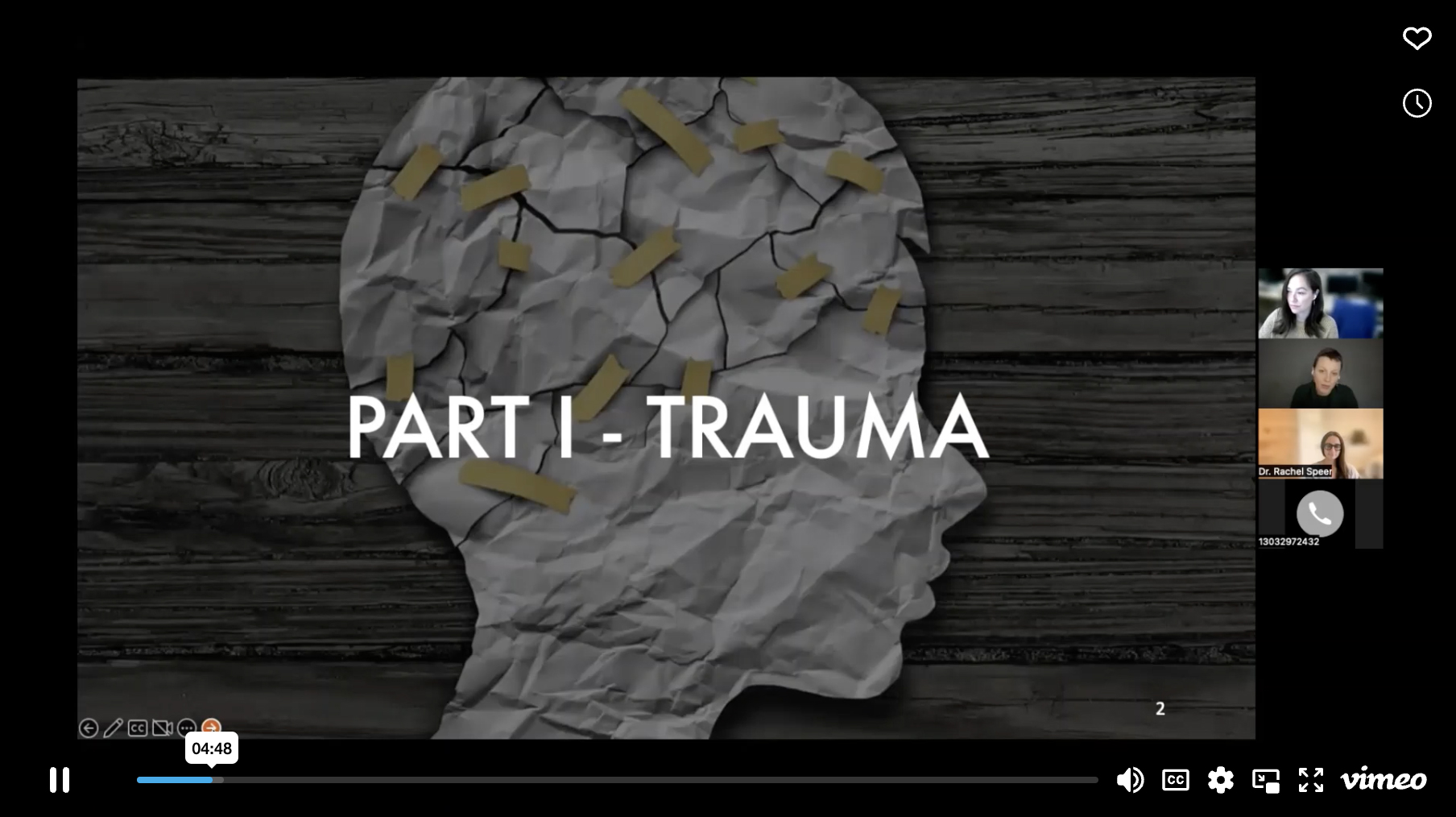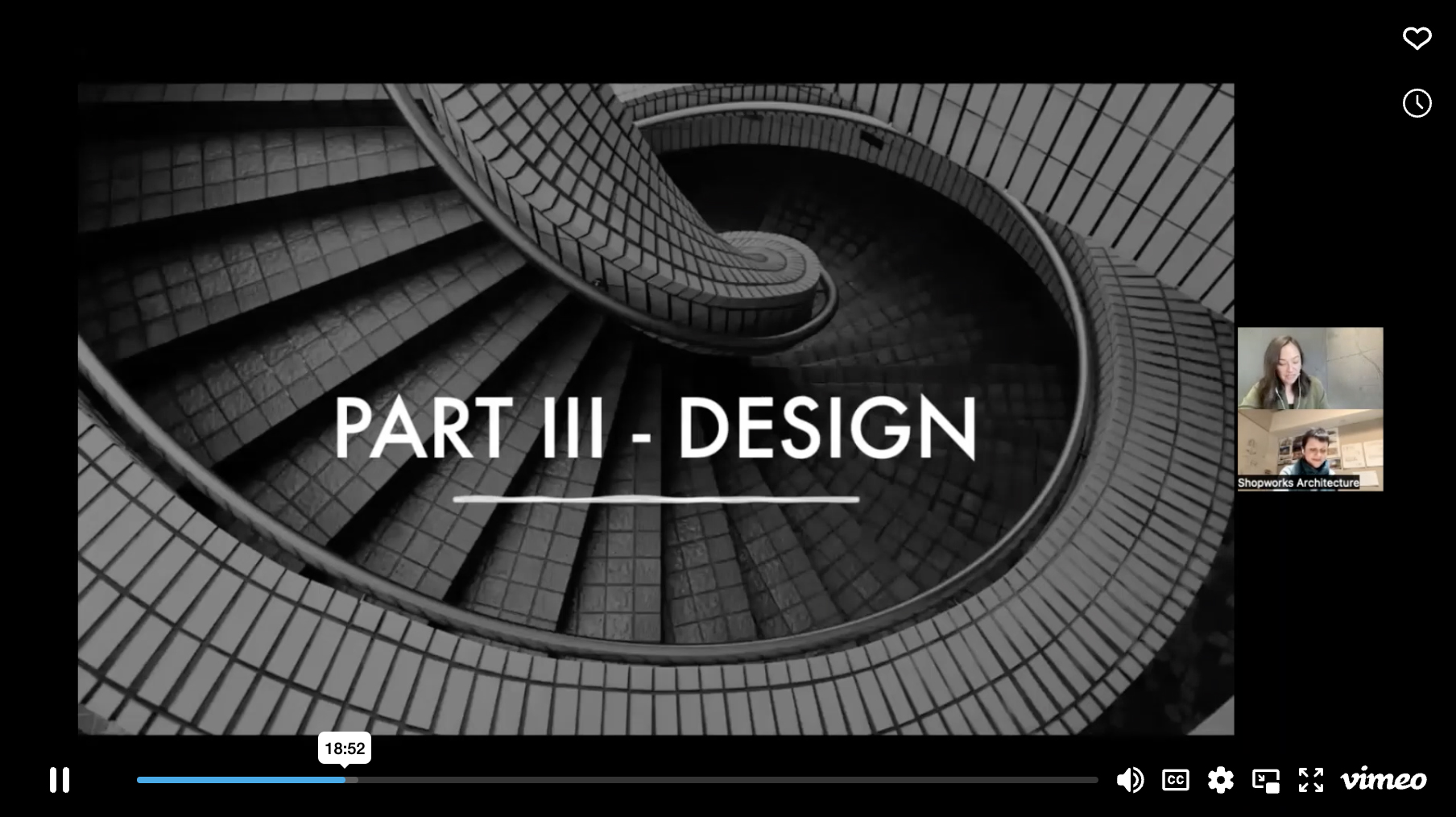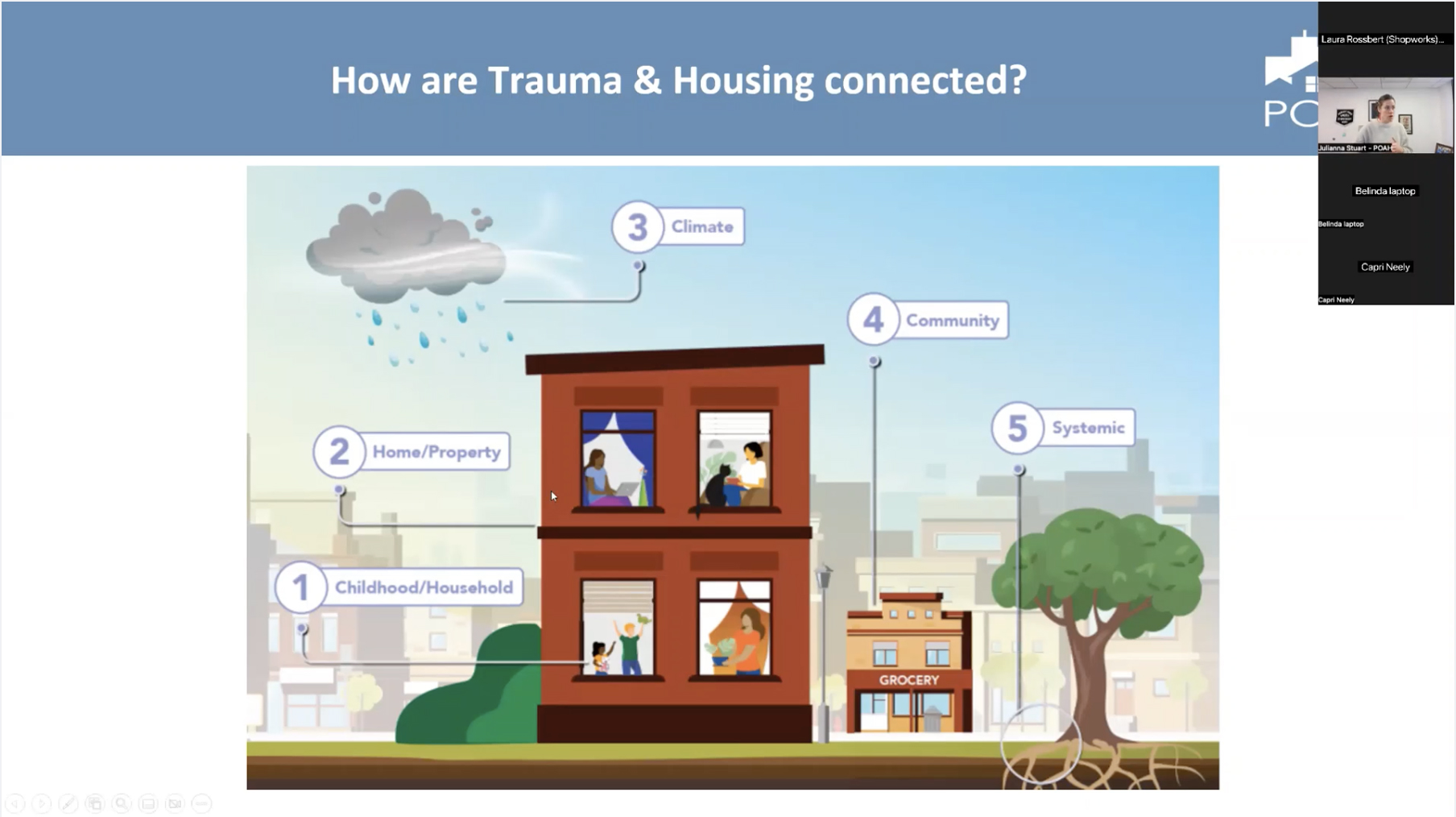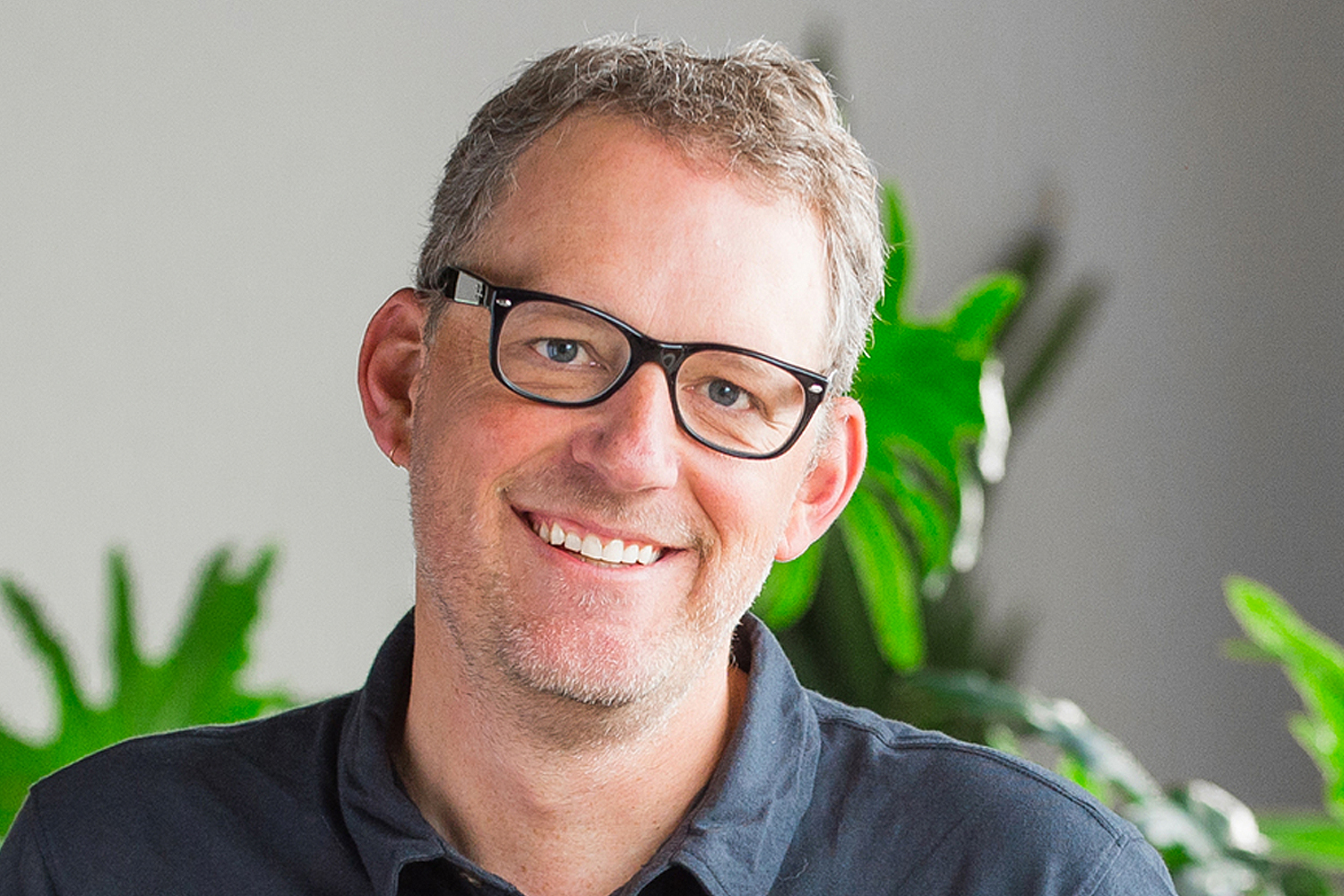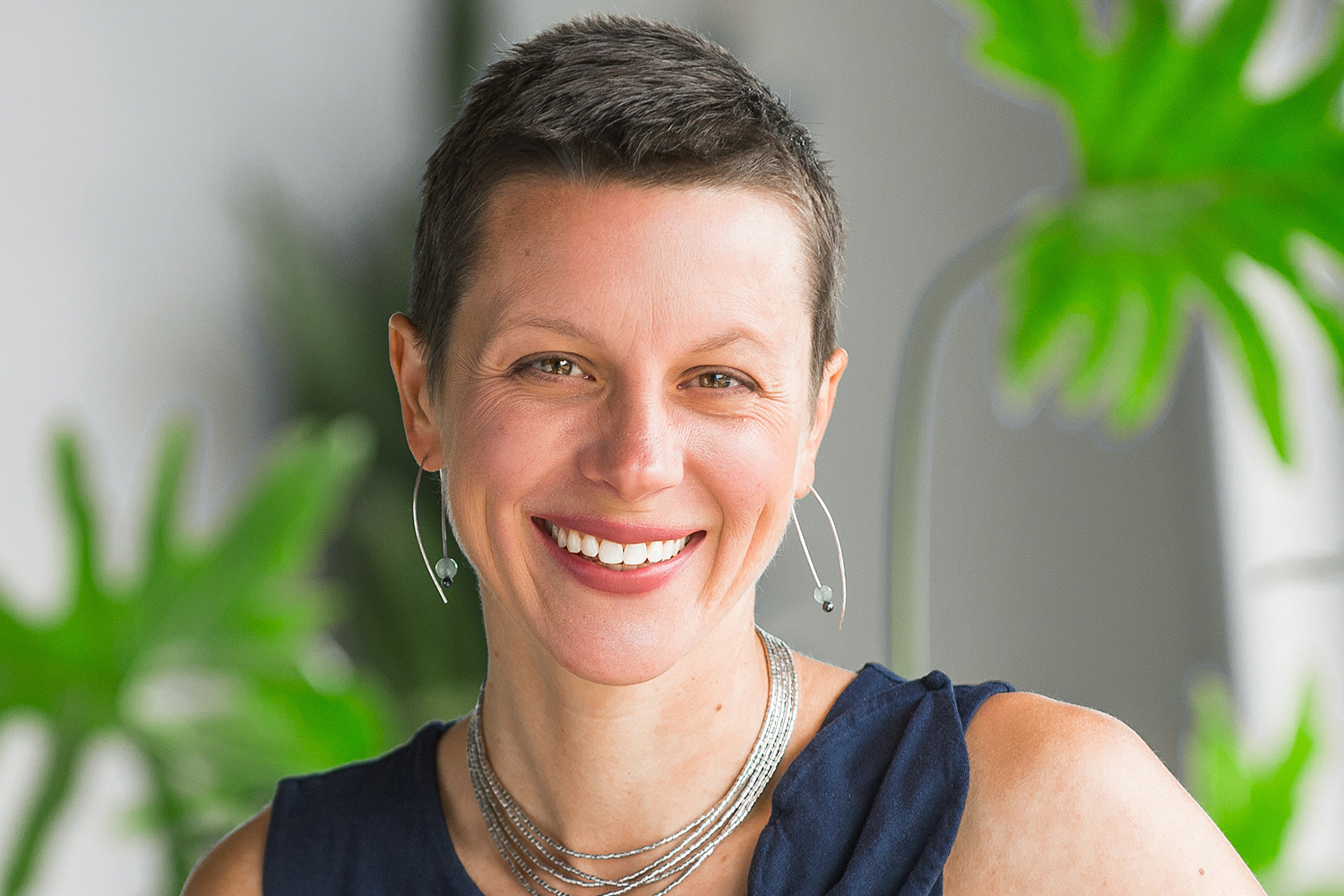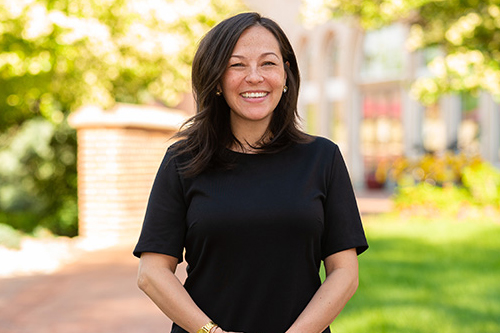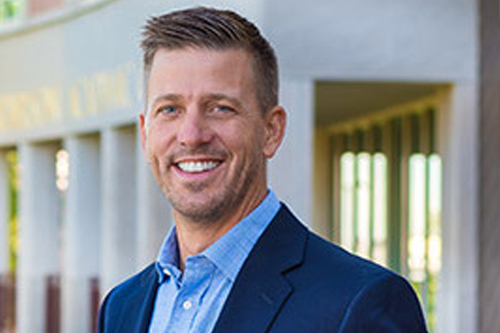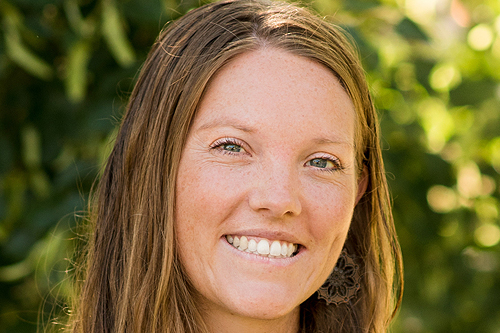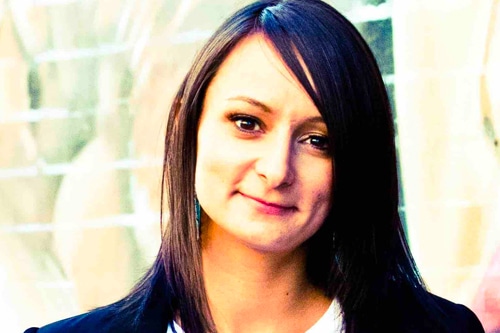Dignified Design, a Trauma-Informed Approach
Designing for Dignity: Elements of Practice centers health, wholeness, and flourishing—stipulating a standard of DIGNITY in housing, shelters, and all environments. Drawing on broad multidisciplinary evidence and the lived expertise of end users, Dignified Design aims to create places that protect, promote, and celebrate the dignity of life. The 22 elements of Dignified Design, outlined in the book, illustrate a range of potential spatial responses with infinite applications, all of which underscore that Dignified Design requires intention, iteration, and evaluation to achieve meaningful impact.
This paper presents empirical evidence on the impact of TID on the health and well-being of residents in supportive housing. Together, quantitative and qualitative data paint a complex picture of life in PSH. A key finding is that safety, conflict, and relationships are interwoven, evolving over time as the residents adapt to their environment.
This paper addresses a critical and timely issue—how the built environment can support dignity for individuals experiencing homelessness and housing instability. Applying a grounded theory approach, the research herein establishes a conceptual model of Dignified Design, revealing that the experiences of safety, comfort, community, and control are deeply interdependent and together create an atmosphere of dignity through the key design attributes of sensory engagement, nested layers, and identity anchors.
This paper provides an overview of our research team’s work to date with a focus on our Trauma-Informed Design Framework, and iterates and improves upon our original framework from 2020. This framework is not a checklist—rather, a compass for designing spaces that support the somatic regulation, recovery, and restoration of end users.
This pamphlet focuses on ways to design a building to help regulate the body and support therapeutic approaches. Since trauma lives and works through the body, and the body reacts to physical space before we cognitively process it, the built environment is integral to how one experiences trauma. This document presents a brief primer on the body-space-trauma relationship, organizing principles for trauma-informed architecture, some examples of built work, and narratives that inform what amenities residents and staff may need.
This is an overview of how we implement TID in our design process. This is not a checklist, but more about how the process should be impacted when we seek to design with an understanding of trauma as a core value. This overview includes case studies on specific developments to show how the process was implemented on specific developments, as well as an accompanying step-by-step manual.
In 2017, Shopworks Architecture became dedicated to applying a trauma-informed design approach to all projects, embracing this learning as ongoing and iterative. Our team has since documented this approach in a manual of the TID 4-Phase Process. The manual outlines activities to be carried out during the four phases, providing high-level guidance for carrying out the steps of a TID process.
Biophilia is the instinctive bond between human beings and living systems. It is our innate urge to affiliate with other forms of life. The term literally means “love of life” and was coined by psychoanalyst Erich Fromm in 1973. The biologist Edward (E.O.) Wilson later popularized the term.
“Biophilia is the innately emotional affiliation of human beings to other living organisms.” (Wilson, 1984).
RESEARCH TEAM
ACKNOWLEDGEMENTS
Funders: Sozosei Foundation, Kaiser Permanente, Colorado Housing and Finance Authority, Gary Community Investments, Housing and Homelessness Funders Collaborative, Energy Outreach Colorado, Group14 Engineering, Shopworks Architecture
Residents, Clients, and Staff at our non-profit partners: The Delores Project, St. Francis Center, Rocky Mountain Communities, Boulder Shelter for the Homeless, Mental Health Center of Denver, Pinon Project, Manna Soup Kitchen, Volunteers of America – Colorado, EarthLinks, Denver Housing Authority, Volunteers in Ministry, Karis, Neighbor to Neighbor, Second Chance Center, TGTHR, Colorado Village Collaborative, Urban Peak, Housing Solutions for the Southwest, Catholic Charities, Homeward Pikes Peak
TID Collaborators: Design Resources for Homelessness, Urban Land Institute, Stewards of Affordable Housing for the Future, SAMHSA, National Center for Trauma-Informed Care, Enterprise Community Partners, Corporation for Supportive Housing, National Equity Fund, Colorado Health Foundation, Housing Now Colorado, BlueLine Development, BeauxSimone Consulting, Element Properties, AIA Colorado, Connecting Paradigms, Designing for Human Health program at Boston Architectural College, Colorado Division of Housing
LINKS
Design Resources for Homelessness Website
Dr. Nadine Burke Harris, “How Childhood Trauma Affects Health Over a Lifetime”
SAMHSA’s Concept of Trauma and Guidance for a Trauma-Informed Approach
OUR TID WORK IN THE NEWS
Trauma-Informed Design + Wood Create Buildings That Heal
Bloomberg: Buildings That Can Heal in the Wake of Trauma
Medium: Anti-Racism Sparks Movement for Trauma-Informed Design
Affordable Housing Finance: How Trauma-Informed Design is Incorporated Into Supportive Housing
Next City: What Is Trauma-Informed Design?
Denverite: At The Intersection of Architecture and Mental Health
CONTACT SHOPWORKS
"*" indicates required fields
